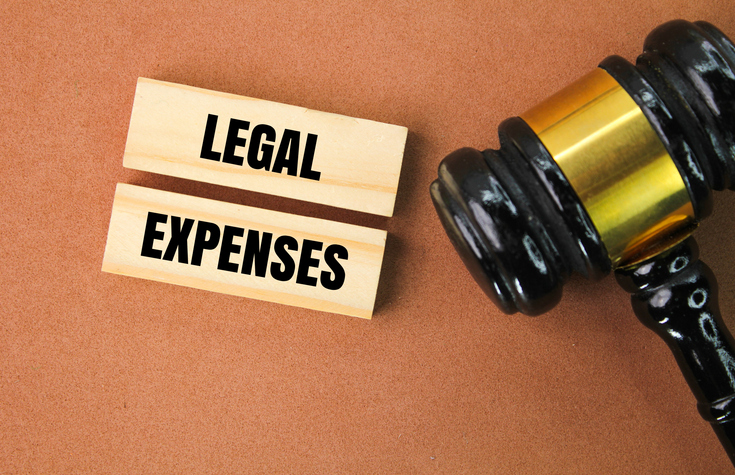Understanding the divorce cost in Florida is often more complicated than couples anticipate. Divorce isn’t just emotionally draining—it can be financially overwhelming if you’re not prepared for the various expenses involved. From attorney fees and court filing costs to mediation sessions and asset division complexities, the final amount owed depends on how the process unfolds.
While many people expect to pay only for legal representation, other hidden charges often surprise divorcing spouses. Florida’s court system does allow couples some flexibility, such as through mediation or simplified dissolution, but even these options carry significant financial implications. Whether you’re navigating a contested divorce with high conflict or looking to dissolve your marriage amicably, knowing the divorce cost in Florida will help you plan ahead—and potentially save thousands.
This comprehensive guide dives into every major cost factor, explaining how legal procedures, time, and cooperation impact the overall expense of divorce across the state of Florida.
What Influences Divorce Cost in Florida the Most?
The most influential factor in determining the divorce cost in Florida is the level of conflict between spouses. Contested divorces tend to be significantly more expensive than uncontested ones. When parties cannot agree on issues like child custody, alimony, or asset distribution, litigation becomes necessary, dragging out the process and inflating costs.
Even something as seemingly straightforward as property division can become a major expense if both sides hire appraisers, forensic accountants, or other financial professionals. Legal battles over custody or spousal support increase the need for extensive court time, additional filings, and expert testimony—each step adding to the final bill.
For those seeking a cheaper path, uncontested divorces or mediation offer an alternative. However, these routes still involve court fees and potential legal consultation, meaning no Florida divorce is truly “free.”
How Court Filing Fees Add Up in a Florida Divorce
Every divorce begins with filing fees. In Florida, the initial filing fee for a dissolution of marriage petition is typically around $400–$450 depending on the county. This doesn’t include additional charges for motions, responses, or service of process, which can range from $10 to $50 per document.
Many couples overlook the cost of serving divorce papers, which must be done either by a sheriff’s deputy or private process server. Fees for this service usually fall between $30 and $100. If your spouse is evasive or cannot be found, publication notice expenses can tack on hundreds more.
Though these numbers may seem modest, court-related costs compound quickly—especially in contested divorces where multiple hearings or motions are required.
Attorney Fees Drive the Majority of Divorce Cost in Florida
A major contributor to the overall divorce cost in Florida is the attorney’s hourly rate. Most family law attorneys in Florida charge between $200 and $500 per hour. With a contested divorce lasting several months—or even years—the final bill can easily reach five figures.
Initial retainers for contested cases usually begin at $2,500 to $7,500 and must be replenished as the case progresses. In especially complex matters involving custody disputes or business valuations, attorney fees can exceed $20,000 per party.
Uncontested divorces may be more affordable, with flat-fee arrangements sometimes available between $500 and $1,500. However, even in simple cases, additional hours may be billed if unexpected issues arise.

How Mediation Can Reduce the Overall Divorce Cost in Florida
Couples looking to lower their expenses often turn to mediation. Mediation allows spouses to negotiate the terms of their divorce with the help of a neutral third-party mediator. While this process does involve fees—typically ranging from $100 to $300 per hour—it often leads to substantial savings by avoiding litigation.
Florida courts frequently order mediation in contested divorces before allowing a case to proceed to trial. In some counties, the court provides low-cost mediation services based on income, which can dramatically lower overall costs.
By resolving key issues outside of court, mediation significantly cuts down on attorney fees and court time. According to Florida Courts, mediation resolves approximately 70% of divorce cases, underscoring its effectiveness in both reducing conflict and minimizing expense.
The Hidden Financial Impact of Asset Division and Debt Allocation
Property division might not involve upfront payments, but it can have long-term financial effects that contribute to the divorce cost in Florida. If couples disagree about how to divide assets such as homes, investments, or retirement accounts, professional evaluations may be necessary.
Accountants, appraisers, and financial advisors are frequently brought in to assess the value of marital property. Their services can cost several hundred dollars per hour. In contentious cases, forensic accountants are needed to uncover hidden assets—adding thousands to the cost.
Dividing debt also becomes complicated, especially when spouses co-signed on loans or credit cards. Court involvement in apportioning debt responsibilities can add to litigation costs, and post-divorce financial strain might extend well beyond the final decree.
How Custody Disputes Can Drastically Increase Divorce Costs
When children are involved, custody disagreements are among the most expensive issues in any divorce. Florida courts require both parents to complete a parenting class, which adds a minor cost (usually $25–$45). However, the true cost emerges when disputes escalate to court.
A custody evaluator or guardian ad litem may be appointed to assess the child’s best interests. These professionals charge between $1,000 and $3,000 for their evaluations. Psychological evaluations, supervised visitation services, or court-ordered counseling can push costs even higher.
Each additional hearing, filing, or expert involvement requires legal preparation—meaning more billable attorney hours. In high-conflict custody cases, the divorce cost in Florida may double compared to cases without children.
Spousal Support Disputes and Their Impact on Divorce Cost in Florida
Alimony is another significant contributor to divorce expenses. Spouses frequently argue over whether support is owed, how much should be paid, and for how long. Florida does not follow a strict formula for alimony, so decisions are made on a case-by-case basis.
This uncertainty often fuels litigation. Attorneys must gather extensive financial data—income records, tax returns, and expense reports—which leads to more legal hours billed. Financial affidavits must be submitted to the court, and if one party disputes the other’s claims, the court may order depositions or financial interrogatories.
Ultimately, disagreements over alimony don’t just affect future finances—they can also spike the current divorce cost in Florida dramatically.

How the Duration of the Divorce Process Influences Cost
Time is money in divorce. The longer a case drags on, the more costly it becomes. A simple uncontested divorce might take as little as 30 days from filing to final judgment, while contested cases can stretch on for over a year.
Each delay means more hearings, more attorney preparation, and more court filings. In counties with backlogged dockets, even scheduling hearings or securing a trial date can create unintentional expenses due to increased legal correspondence or last-minute motion practice.
A quick resolution isn’t always possible—but couples who cooperate and disclose financial information early tend to reduce their total legal costs significantly.
Does the County You File In Affect Divorce Cost in Florida?
Yes, location matters. Filing fees, required procedures, and court-mandated mediation availability vary slightly from one Florida county to another. For instance, divorce cost in Florida counties like Miami-Dade or Palm Beach may be higher due to regional variations in attorney rates and judicial practices.
Counties with overburdened court systems may also cause scheduling delays, adding weeks or months to the process. Additionally, judges in some counties may be more inclined to require parenting evaluations or additional mediation sessions, further increasing costs.
Although state law governs divorce procedures, the local court’s administrative rules and preferences can greatly influence the financial bottom line.
How Self-Representation Impacts the Divorce Cost in Florida
While some spouses choose to represent themselves to cut costs, this path can be risky. Known as “pro se” representation, handling your own divorce may save attorney fees—but only if both parties are cooperative and the case is truly uncomplicated.
Mistakes in paperwork or failure to comply with court procedures can lead to delays, repeated filings, or unfavorable judgments. In the long run, correcting these errors often requires hiring an attorney anyway—potentially costing more than if legal counsel had been retained from the beginning.
Even in amicable situations, some legal guidance is usually advisable. Many attorneys offer unbundled services, allowing you to pay only for document review or limited court appearances, balancing affordability with proper legal protection.
How Legal Aid and Low-Income Services Affect Divorce Costs
For Floridians with limited financial resources, help is available. Various counties offer legal aid services to eligible individuals, sometimes providing full representation or at least document preparation support.
Organizations like Florida Legal Services assist low-income individuals with family law matters, including divorce. These services may reduce or eliminate legal fees, but access can be limited due to high demand and strict eligibility criteria.
Additionally, many Florida courts offer self-help centers where individuals can access legal forms and guidance. These resources are especially valuable in reducing the divorce cost in Florida for self-represented litigants.

When Is It Worth Paying More for Divorce Representation?
In high-stakes cases—those involving significant assets, complex custody issues, or abusive relationships—it may be worth investing in experienced legal representation. While higher attorney fees raise the divorce cost in Florida, they may ultimately protect long-term interests and ensure a fair outcome.
Strategic legal guidance can prevent costly mistakes, negotiate better settlements, and shield clients from excessive obligations. In such scenarios, cutting corners to save money can have lasting negative consequences.
A Realistic Estimate of Total Divorce Cost in Florida
So, what’s the average divorce cost in Florida? For uncontested divorces with no children, costs might be as low as $1,000–$2,500 including filing fees and limited legal assistance. In contrast, contested divorces with complex issues can range from $15,000 to over $30,000 per spouse.
These estimates underscore the importance of planning, cooperation, and cost-saving strategies like mediation. Every divorce is different, but awareness of potential expenses helps individuals approach the process with clarity and confidence.
For more insight into specific expenses, a detailed cost breakdown is available at this comprehensive guide on divorce cost in Florida.
Final Thoughts on Navigating the Financial Side of Divorce in Florida
Divorce is never cheap, but understanding the key factors that influence the divorce cost in Florida can help you take control of the process. Whether you’re pursuing a simplified dissolution or preparing for litigation, knowing where expenses come from allows you to make informed decisions at every stage.
From filing fees and attorney rates to child custody battles and property division, each component carries financial weight. Choosing mediation, preparing early, and understanding local court practices can dramatically reduce the financial burden.
And for those who need emotional guidance during this legal transition, resources like counseling and family law support programs offer help beyond financial planning. Divorce is both a legal and personal journey—and managing the cost is one essential step toward a stable future.

Leave a Reply